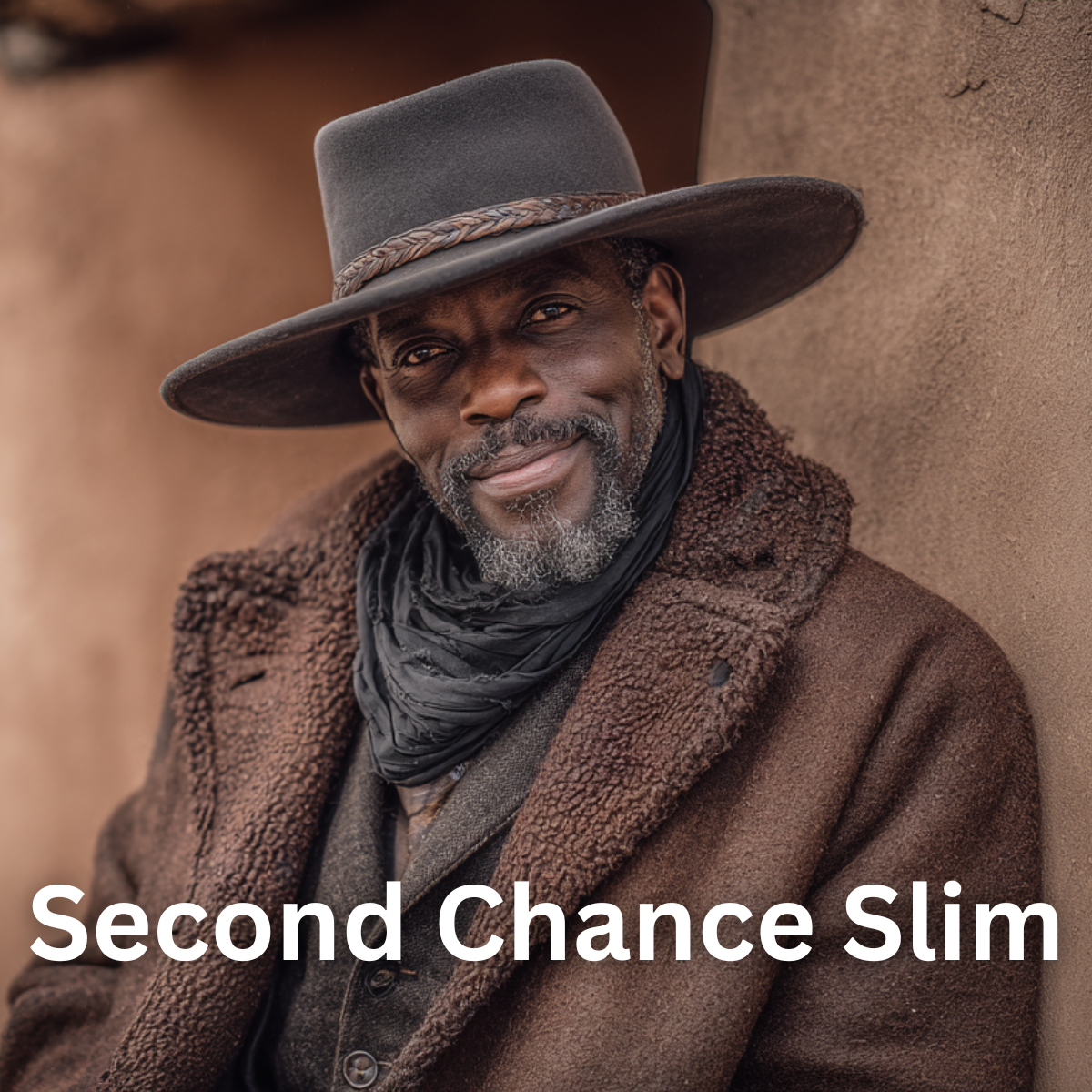A few centuries ago, in the place we now call Santa Fe, New Mexico, there lived a man named Sylvester Small. No one remembers that name. They remember the nickname that stuck to him like burrs on a coat. Second Chance Slim.
Slim had a quick mind, a sly sort of intelligence that liked to hide behind a grin. He learned early that people underestimate what they do not see; they reveal more than they intend with a shrug, a blink, a breath. He made a living on small wagers, nothing grand at first. He would offer some harmless contest to a traveler fresh off the trail, lose it on purpose, and while the coins exchanged hands, he would watch. He would watch how that person smiled at victory, how hands twitched at the moment of risk, how pride warmed the voice. Then he would raise the stakes and win the second bet, more often than not, with a casual flourish as if the outcome had never been in doubt.
One afternoon offers a good example. A peddler in a dust brown coat came into the gambling hall with a sack of curios and a pocket full of opinions. Slim greeted him at the bar and suggested something ridiculous to pass the time. On the far wall ran a pair of blue bottle flies, drawn to a smear of jam beneath a cracked window. Slim pointed. They would each pick a fly and bet whose fly would land first on the rim of the bartender’s glass. A silly contest in a room full of serious games.
They set a modest stake. Slim took the fly on the left and lost within seconds. He lost because he was not chasing a fly. He was studying a man. The peddler scooted his stool forward when he felt advantage. He tapped the counter in a steady rhythm when he grew confident. He liked to breathe in sharply right before he expected a win, as if pulling the moment toward himself.
Slim smiled, raised the stakes, and proposed they switch sides. Double or nothing, he said. The peddler agreed, pleased with his good fortune. Slim then asked the bartender for a wedge of lime and set it, casual as a yawn, near the left side of the glass. When the second round started, the peddler’s rhythm returned, the sharp breath came, and the fly adjusted its course, veering away from the citrus. Slim’s fly, now on the right, landed first. The peddler slapped his knee, laughed, and paid up. Folks around them laughed as well. Ridiculous, yes, and that made it fun. Slim made a show of it, but in truth he had simply noticed a tendency and set the scene to favor it. That was his gift.
Gifts turn on you if you lean on them wrong. Slim began to like the feeling of redemption more than the feeling of diligence. Second chances can be good medicine, but only when they are not a diet. At first he lost on purpose with a plan, then he started to lose his edge without meaning to. The inner push that says do it right the first time became a softer whisper that said you can correct it later. He stopped sharpening the blade and started admiring the scabbard. It happens slowly. You promise yourself you will fix a habit tomorrow. You let a promise slide, counting on your charm to mend the moment. You postpone the hard work, because the second attempt has always rewarded you.
People noticed. The townsfolk grew used to Slim holding court, calling for a second round where the real contest happened. They also grew tired of it. Even kind people keep a ledger, not of money, but of patterns. They offered him grace the first few times, then they learned to step away before the real bet began. The conclusion formed quietly in their minds. You do not take things seriously until you are forced. Trust rarely fails in a single dramatic collapse. It drains away in a slow leak, through a dozen small do overs that never should have been needed.
As trust thinned, opportunities thinned with it. The world does not announce last chances with trumpets. It just stops inviting you. The better offers drifted toward steadier hands, and Slim found himself chasing attention with bigger promises. He had to raise the stakes to keep people at the table. The risk climbed, the consequences climbed with it, and the old thrill of turning a loss into a win started to feel like necessity rather than play.
There is a muscle that feels the weight of decisions. It is moral, and it is psychological. It grows when you take the first attempt seriously. It atrophies when you live on resets. Slim began to go numb in that place where concern should live. Without concern, there is no real accountability. In that numbness, he picked a foolish fight with a local businessman, a man whose pride was only slightly bigger than his waistcoat. Words flew, then a challenge. In Santa Fe, the polite custom after harsh words was a simple and clear apology. Slim chose spectacle. He accepted a gentleman’s duel as if it were another of his games.
The shots cracked. Slim took a bullet through the arm and went down hard, staring at the sky while the pain hammered him awake. He healed in time, more or less, and before the scar settled, he wondered how to turn the story to his favor. He told it in the hall with a flourish, as if survival proved his invincibility. The lesson that should have sobered him became another prop for the second show.
Life does not keep score the way we do at a card table. Some doors, when they close, do not open again. Not because forgiveness is impossible, but because circumstances shift. Timing is as real as talent. Delay that grows out of complacency becomes permanent loss before you realize what has happened.
Then came the day Dead Eye Davy walked into town. Davy was a name whispered in other places with a mixture of awe and dread, famous for a pistol that seemed to point itself. He looked worn down and short on money. Slim, who never could resist a legend with a dent in it, challenged him to a duel for a small purse. Slim held up the billfold to make the point. Fifty strides, Slim proposed, a distance he judged to be beyond the edge of reliable accuracy. It was a familiar play. He did not expect to win the first round. He expected pride to do the work for him later. He would offer a second contest, perhaps some trick shot that no one could make. Davy’s reputation would press him into accepting, the stakes would rise, and Slim would find his angle.
They paced it out in the late afternoon. Dust hung in the air like a veil. Slim’s heart beat in that old rhythm of the second chance, the one that says nothing is final on the first try. They turned. Davy did not pose or preen. He simply raised the gun and pulled the trigger.
The bullet crossed the distance as if the space were nothing. It took Slim through the heart. He folded to the ground, eyes wide with the realization that at last he had found a moment that would not offer another round. He had a tiny sliver of time to see what we are slow to admit. Grace is a gift, not a strategy. It is mercy, not a method. You cannot mortgage the future on the kindness of others and expect to keep your character intact.
There are people who live as if mercy is permanent. They remain children in grown bodies, clever, sometimes charming, forever almost ready to do it right. Then there are people who treat moments as rare. They prepare with care. They do their best on the first attempt, knowing that sometimes you will still fail, but you will fail with honor and learn what you need to learn. Those are the people others lean on when the wind picks up and the light fades. The rest are stories we tell to our children at night, not to entertain them, but to remind them. Do not become Second Chance Slim.




